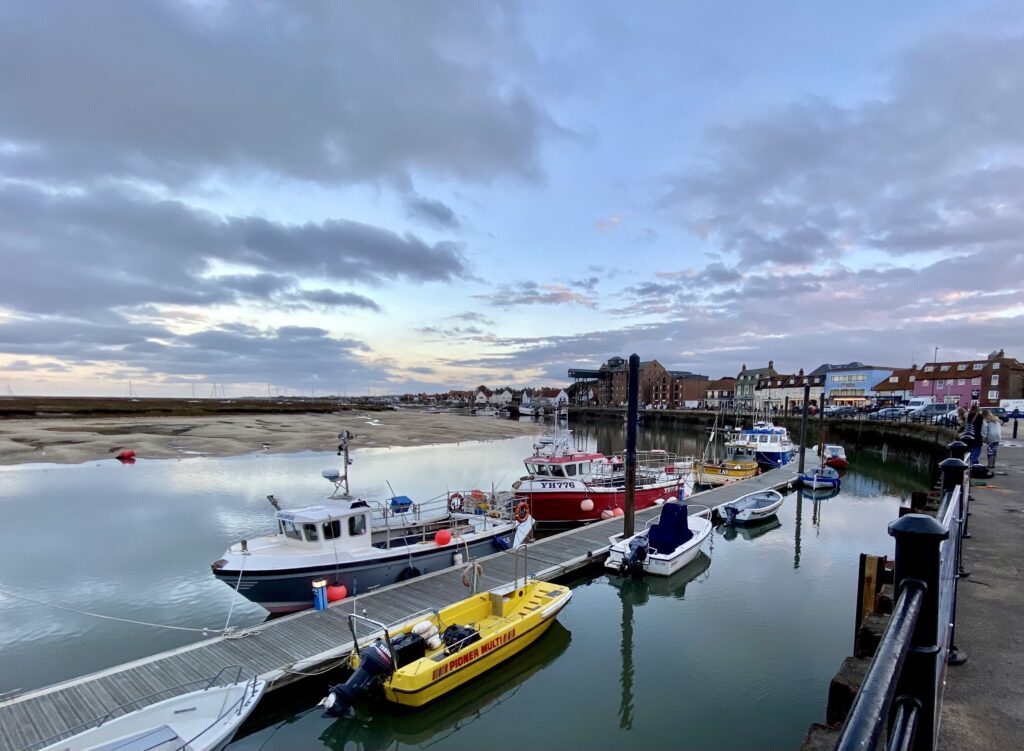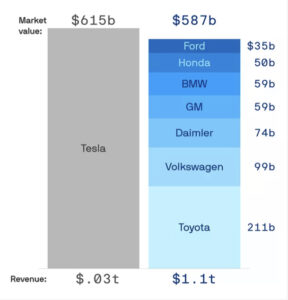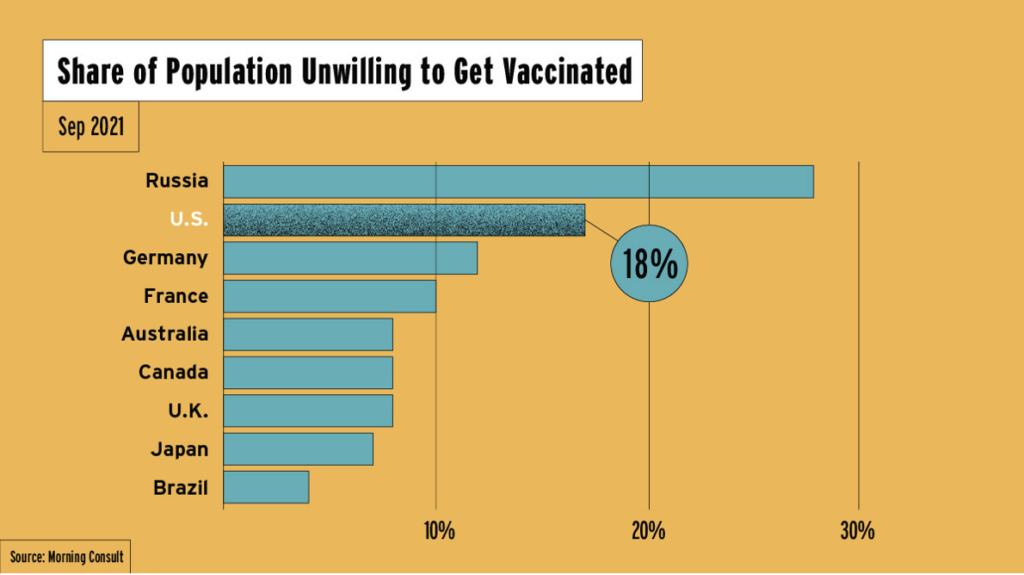Autumnal flourishing

Seen in a friend’s garden.
Quote of the Day
“A party without cake is just a meeting”
Musical alternative to the morning’s radio news
Randy Newman | If I Didn’t Have You | (From the soundtrack of Monsters Inc.)
Link
Long Read of the Day
‘The Problem Is Him’ Kara Swisher on Mark Zuckerberg
For years I’ve thought of Zuckerberg as a high-IQ, half-educated sociopath who happens to be the absolute ruler of a powerful company. But Kara Swisher knows — and has interviewed — him a few times. So I found that this NY Mag interview with her made riveting reading. Hope you do too.
Here’s a sample:
Q: In the 2018 interview, he said that his philosophy about running a company was understanding what you’re willing to tolerate. Have you noticed any change in what he or Facebook tolerates?
A: He doesn’t think like you and me. When they were debuting Facebook Live, I had a million questions about abuse. And they were like, “What are you talking about?” It was so typical. It wasn’t him, but it was his people — people who were like him who just reflect him. They were like, “You’re such a bummer, Kara.” And I’m like, “Okay, I’m a bummer, I guess, but I think someone’s going to kill someone on this thing and broadcast it.” And it didn’t take long before there was a mass murder on it. The idea of consequences seems to escape them almost entirely because most of them have never had an unsafe day in their lives. Truly. Why would he? He lived in a very, very expensive suburb of New York. He was treated like a prince by his parents. He went to Harvard. What’s his difficulty? What’s his challenge? I’d like to know.
Do read the whole thing.
A British teenager bought Google ads for his scam website and made 48 Bitcoins duping UK online shoppers
“If he was an adult he would be going inside”, said the judge.
From The Register:
A “sophisticated” teenager has had £2.1m ($2.88m) in cryptocurrency confiscated after he set up a phishing site and advertised it on Google, duping consumers into handing over gift voucher redemption codes.
The schoolboy set up a website impersonating gift voucher site Love2Shop. Having done that he then bought Google ads which resulted in his fake site appearing above the real one in search results, Lincoln Crown Court was told.
Crown prosecutor Sam Skinner told Her Honour Judge Catarina Sjölin Knight that the boy, whose identity is protected by a court order, harvested £6,500 worth of vouchers in the week his site was active. Love2shop began investigating in April 2020 after a customer complained, at which point the boy took down his fake site.
The stolen vouchers were converted into Love2Shop vouchers on the A-level student’s own account. A later police investigation discovered 12,000 credit . card numbers on his computer along with details for 197 Paypal accounts. On top of that, he had 48 Bitcoins: when police arrested him in August last year these were worth £200,000 but their value has risen tenfold since.
When I checked yesterday, one Bitcoin was worth £42,820.34. So the lad’s little haul came to £2,055,376!
‘Applying to be a spy felt thrilling – until a stranger approached me on a train’
Salutary tale for those thinking of applying to MI5/6, as Emma Hughes apparently did.
I lived in west London at the time, and took the Piccadilly line to work. The train had often come from Heathrow, full of travellers, some of whom could be chatty. So I thought nothing of it when, one morning, the man standing next to me struck up a conversation. He was slightly older, with an accent I couldn’t place and a pleasant but persistent manner.
Whereabouts did I live, he asked. What was it like? How long had I been living there? Was it convenient for my office? Where did I work? I was still instinctively wary: even at 23 I had lived long enough to know that interactions with strange men on public transport, no matter how innocent, rarely ended well.
After a couple of stops, he turned to me as the train slowed to a halt. “Well, this is me,” he said. “It was nice to meet you, Emma Hughes.”
It wasn’t until the train started moving again that I realised I hadn’t told him my surname.
She didn’t make the cut, needless to say.
Facebook isn’t the only shifty tech company
Some conscientious souls have been digging out juicy bits in the 173-page antitrust suit filed by 17 US states against Google. Here’s an excerpt that interested me; it’s about Google’s use of its Chrome browser to track users across the Web.
To get publishers to give Google exclusive access over their ad inventory, Google set publishers up for a lose/lose scenario. First, Google started to leverage its ownership of the largest web browser, Chrome, to track and target publishers’ audiences in order to sell Google’s advertising inventory. To make this happen, Google first introduced the ability for users to log into the Chrome browser. Then, Google began to steer users into doing this by using deceptive and coercive tactics. For example, Google started to automatically log users into Chrome if they logged into any Google service (e.g., Gmail or YouTube). In this way, Google took the users that choose not to log into Chrome and logged them in anyways. If a user tried to log out of Chrome in response, Google punished them by kicking them out of a Google product they were in the process of using (e.g., Gmail or YouTube). On top this, through another deceptive pattern, Google got these users to give the Chrome browser permission to track them across the open web and on independent publisher sites like The Dallas Morning News. These users also had to give Google permission to use this new Chrome tracking data to sell Google’s own ad space, permitting Google to use Chrome to circumvent reliance on cookie-tracking technology. The effect of this practice is to rob publishers of the exclusive use of their audience data (e.g., data on what users read on The Dallas Morning News), thereby depreciating the value of publishers’ ad space and benefitting ad sales on Google’s properties (e.g., YouTube).
(Thanks to Jon Gruber for the link.)
I don’t use Chrome, for a variety of reasons, including the shenanigans detailed above.
In some ways, Facebook’s current PR travails have been a Godsend for Google, which is just as manipulative and domineering but has been under the radar in the last year or so. This antitrust suit provides a useful reminder that society has unfinished business with the search giant too.
Amazon is now critical infrastructure for more than home deliveries
Well, well. It’s been revealed that the UK’s spy agencies have signed a contract with Amazon Web Services (AWS) — the company’s cloud-computing operation.
Labour is demanding that the home secretary explain why GCHQ, MI5 and MI6 will use a high-security system provided by the US-based firm, and whether any risk assessment was undertaken before the deal was signed.
The agreement, estimated by industry experts to be worth £500m to £1bn over the next decade, was signed this year, the Financial Times first reported, citing people familiar with the discussions.
Other government departments such as the Ministry of Defence will also use the system during joint operations.
Truly, you couldn’t make this up, even if (like some devout Remainers) you thought that sovereignty is dead. Turns out that some of the US’s security services are also running their stuff on Amazon’s cloud.
Which reminds one of the old joke — that if Marxist revolutionaries ever managed to stage a successful coup d’etat in the US, all they would have to do once they arrived in the White House would be to nationalise Amazon, after which they could tweet “Job done: mission accomplished.”
My commonplace booklet
Eh? (See here)
I’ve had lots of fascinating emails about the Classic iPod which make it clear that I was not the only one who appreciated that lovely and iconic device. Many thanks to everyone who wrote in. I’m going to have a go at reviving — perhaps revivifying — mine. Stay tuned.
This Blog is also available as a daily email. If you think that might suit you better, why not subscribe? One email a day, Monday through Friday, delivered to your inbox. It’s free, and you can always unsubscribe if you conclude your inbox is full enough already!









